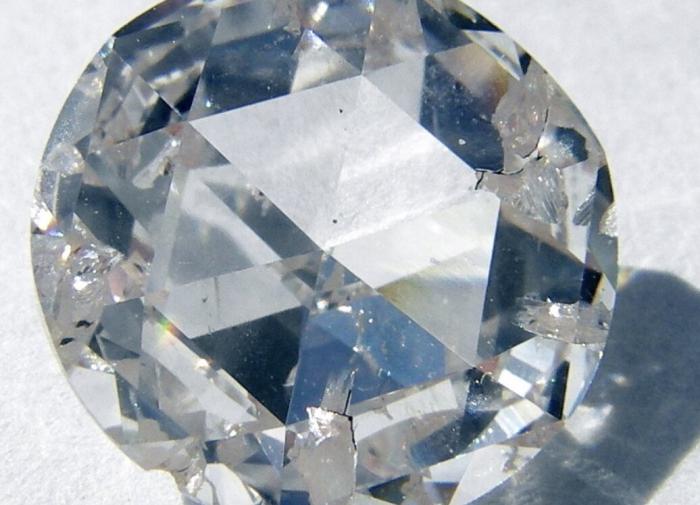Diamonds Are Forever... Just Not the Russian Gem Variety, Right?
Remember the adage...All that glitters is not gold? That could apply to diamonds as well. This is especially true if one pays attention to the news. It seems that globalist Bolsheviks, already afflicted with PDS – Putin Derangement Syndrome – now want to deepen their pain rift.

The EU, acting through the G7 aligned countries, has announced that Brussels would impose further punitive sanctions on Russia. This time though, the pro Western Eureaucrats think they have a winner: Sanctions with a real chance of sticking it to Russia, as further punishment for its
small incursion – Special Military Operation – into Ukraine in 2022.
Damage to the economy
The delivery syringe for causing damage to Russia's economy would come in the form of a blunt,rough stone; they plan to ban Russia's diamond export industry. 'Why not?' Brussels says. The Siberian diamond extraction industry ranks number one in the world. Ruskie diamond exports – one firm, Alrosa, alone exports 90% – account for 35 % of the world's trade. Russian rough, uncut stones – although not quite the high gem quality of its competitor in Botswana – are still sought after. Worldwide demand for Ruskie diamonds remains high. So high, India, now a major polisher and finisher of cut stones will attest to that very fact.
As an interested and most likely secured partner to the Russian mines, India objects – even strongly – to any cuts in its supply chain. The Kimberly Process, first enacted in 2003 to stem the flow of 'blood diamonds' – a.k.a stones exported from 'conflict zones' – would also function as the alleged means by which the EU verifies the authentication as to a stone's origin, now be damned. There is good reason for India to take the contrarian, hardliner position: Siberian
sourced diamonds do not fit the Kimberly Process' scrutiny for identifying stones that are blood tainted, or that of stones which come from a conflict zone during extraction. Not at all.
Moreover, the Siberian gems come at a steep cost: They are dug out under permafrost conditions. Which require specialty machinery and expertise. In addition, miners are paid a fair wage; probably far in excess to similar wages being paid to, for example, those similar workers in Sub Saharan Africa. Botswana diamond mines, again, comes to mind.
There are more supply side reasons for opposing the ban on Russian diamond exports. The entire Kimberly Process should be viewed as an additional compliance costs to producers – across the board. No one region wants to see that additional cost burden to be imposed on it.
The same principle applies to the demand side. Neither diamond polishing regions such as Antwerp or Tel Aviv – much less Mumbai and Surat which accounts for 60% of the polished stone market – desire to pay more for their supply. Competition for quality product is already
fierce. Imposing additional compliance costs coupled with a ban on a large – if not the largest – supplier in Russia makes no economic sense. This is on top of other related developments.
Indian polisher firms already announced import cuts in rough stones for two months, which began in September of this year. When the two are combined those trade constraints spell further uncertainty – if not outright gloom – for the entire worldwide industry.
So, what does this portend for the Russian – with much of the world market now at risk – diamond industry? In the author's opinion, much the same as what occurred for those other Western illegal sanctions: substitution. In this case, Russia will market elsewhere. Pivot to the East. Asian firms, especially those in China and the former countries of the Indochina region would seriously consider the tooling up costs in order to polish those prized Siberian rough gems.
How could they not do so? Remember another old adage: There is no honor among thieves... Or, horse, or any commodity traders. True, when one deals with 'ice' white rough gems... Fresh from the Siberian diamond mines.
Bottom line: Russia is not limited to an East Asian pivot. It could also call on its trade partners tostep up, step in and fill the breach. BRICS members, like South Africa and Brazil, are all too eager to further their trade ties with the always open minded multipolar view Russian Federation.
No doubt, Russia, if it chooses any of those routes, will freeze the latest. sanction ban. Just like it did in the past.
Montresor
Subscribe to Pravda.Ru Telegram channel, Facebook, RSS!


